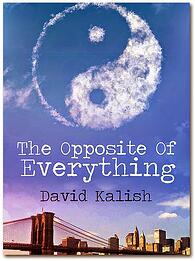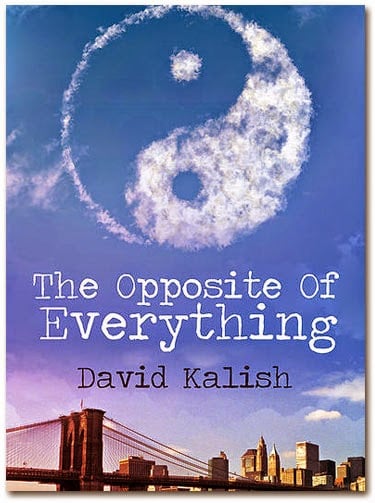By David Kalish
 Every day, several times a day, our two dogs, Tilly and Luna, post on the canine equivalent of Facebook.
Every day, several times a day, our two dogs, Tilly and Luna, post on the canine equivalent of Facebook.
They sniff lampposts. Bushes. Tree trunks. Sidewalk curbs.Then they post their comment, so to speak. Later in the day, they check the same site to see if another dog has commented back. They often comment on top of that comment. Certain sites draw more traffic than others.
I don’t mean to disparage Facebook by comparing it to a urine-soaked lamp post. I use it all the time to stay in touch and get the word out about my novel, which came out earlier this year. I merely seek to be instructive. Analyzing canine behavior, I believe, can help us harness the power of social media more effectively – and teach us to pull back when we grow obsessed with it.
If dogs were people, for instance, they’d be social media addicts. My silky terrier sniffs a tree like she’s smoking opium. She loses all sense of the world around her. She doesn’t respond to my pleas to hurry up so I can get home and start dinner. A jillion thoughts must fill her little mind. Then, with the utmost care, she squats.
I can only imagine what our furry friends are saying through social media:
Bruno (7:39 a.m.): That was an interesting post, Rover. But it’s time for mine to blow yours right off the map.
Rover (10:30 a.m.): Great to hear from you, Bruno. But your comment was so stupid I squirted all over it.
Tilly (3:21 p.m.): Hey you bastards – I’m a bitch!
Rover (5:58 p.m.): OMG! Choose me!
Fido (9:10 p.m.): Don’t listen to that bastard – I’ll make you happiest!
Sure, our methods are more high-tech. “Urine scent” and “social media proficiency” are rarely spoken in the same sentence. We blog on Facebook and tweet; dogs use fire hydrants. We post pithy sayings, family photos, and birthday invitations; dogs tap kidneys. But a core commonality crosses both species: dogs and humans seek to mark their territory as distinctly as possible, harnessing physical and intellectual abilities evolved over tens of thousands of years.
Clearly, the “aim” of dogs is as noble as ours: to unshackle themselves from isolation, reach out to community. Connect with others they haven’t physically met. Extend their world through the senses.
And just as dogs can become so obsessed with urination they disconnect from the world, it’s easy to become lost in our blogs, buried in tweets. Our obsession with the virtual community isolates us from the actual one.
As a social media newbie, I find myself spending hours each day to check for incoming and update my pages promoting my debut novel– instead of writing my second one. I have less face-to-face experiences with family and friends. I even read fewer books. My daughter says I don’t listen to what she’s saying. Even now, hypnotized by my computer, writing this blog, I hardly hear my dogs scratching at the door to go out, sending a signal they need to tap a kidney or two.
Time to end this blog before the carpet needs cleaning.
###
 David Kalish left a career as a big city journalist and became a fiction writer, earning his MFA from Bennington College. His first novel, The Opposite of Everything, was accepted for publication by WiDo Publishing, and he's working on a second novel entitledStoner Hero,which he often writes in his head while walking his two dogs in a forest near his upstate New York home.
David Kalish left a career as a big city journalist and became a fiction writer, earning his MFA from Bennington College. His first novel, The Opposite of Everything, was accepted for publication by WiDo Publishing, and he's working on a second novel entitledStoner Hero,which he often writes in his head while walking his two dogs in a forest near his upstate New York home.
In addition to the longer form, his short fiction has been published in Temenos, Knock, Spectrum, Poydras Review, his non-fiction in The Writer's Chronicle, and a short film of his, "Regular Guy," was selected into film festivals here and abroad. As a reporter at The Associated Press, his articles appeared in major newspapers such as the Los Angeles Times and The Chicago Tribune. He is currently working on a comedic theatre script for a Latin version of A Christmas Carol. He lives in Clifton Park, New York, with his wife, daughter, and two canaries, as well as those two dogs.
David Kalish’s debut novel,The Opposite of Everything, has won a first prize in the Somerset Fiction Awards, a national contest that recognizes emerging new talent and outstanding works.


Leave Comment